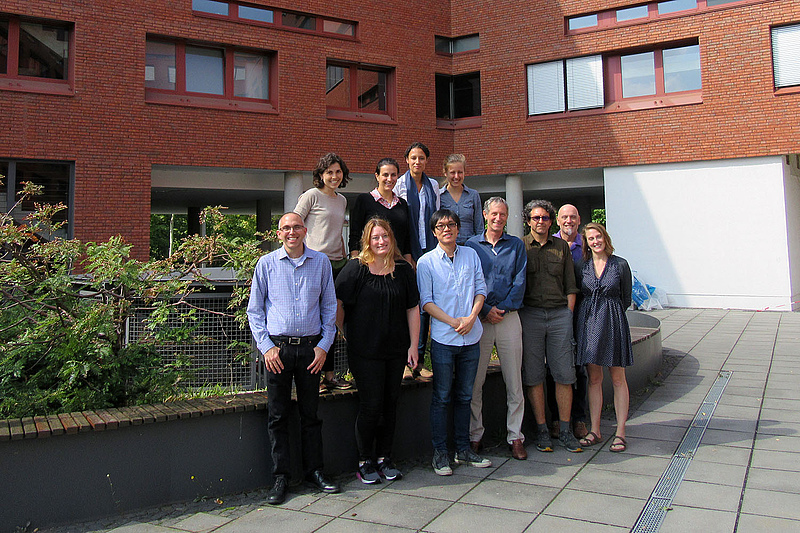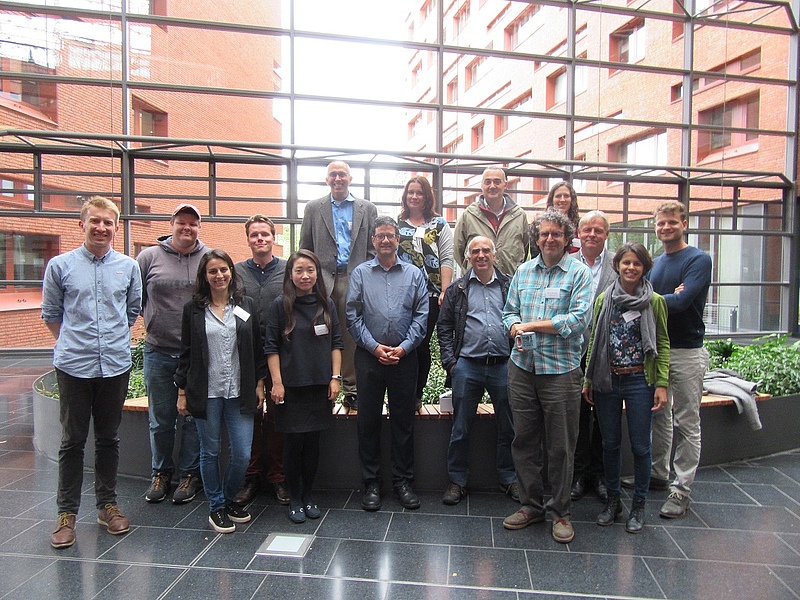sUrBio2050 – Assessing globally important areas for biodiversity preservation and human well-being
First meeting: 04.-07.09.2018
PIs:
Thomas Elmqvist
Henrique Pereira
Rob McDonald
associated postdoc:
Andressa Vianna Mansur
iDiv member:
Jonathan Chase
Project summary:
Natural systems play a crucial role in maintaining the diversity of life on Earth as well as an integral role in human well-being. Urban areas continue to grow at an unprecedented rate, and by 2050, 70 per cent of the world’s population will be urban. If unplanned, this rapid urban growth can deeply degrade natural systems, imperiling globally-significant biodiversity, ecosystem services, and decreasing human well-being. Yet, natural systems are often not fully integrated into sustainable urban design and planning efforts, nor into the decisions of national and international policymakers. If we do not adequately plan for urban growth in places of globally-significant biodiversity, the world may fail to meet its ambitious targets under the Convention on Biological Diversity. In addition, And without considering the important role natural systems play for human well-being, the international community may fail to meet its targets under UNFCCC (such as goals for climate change adaptation), the Sustainable Development Goals, and the New Urban Agenda.
While there have been pioneering projects detailing the importance of drawing linkages between growth in cities and natural systems, there is a lack of a global and coordinated assessment of where natural systems are crucially important to protecting globally significant biodiversity or provisionding for human well-being. To close this knowledge gap, Future Earth, The Nature Conservancy (TNC), and Stockholm Resilience Center (SRC), along with the Secretariat of the Convention on Biological Diversity (SCBD), SwedBio, and the International Council for Local Environmental Initiatives (ICLEI) and others, are leading an ambitious scientific assessment entitled, “Nature in the Urban Century: Global important areas for biodiversity preservation and human well-being”. Drawing on existing research, the assessment will develop and map a set of integrated indicators to guide international, and national and local decision-makers focused on protecting biodiversity or human well-being as well as planning for sustainable urban development. Conceptually, the assessment will focus on three categories of urban impact on natural systems, each chosen to be relevant to international policy targets.
1. Natural system loss: Urban growth has direct impacts on periurban environments, as natural systems are converted to developed land uses. We will assess where natural system loss may cause:: a. Globally significant loss of biodiversity, and b. Decrease in human well-being or an increase in vulnerability to climate change and other risks.
2. Impacts on protected areas: Urban growth will surround many protected areas, potentially degrading many of their ecological functions. We will assess how increases in proximity between urban and protected areas will impact the world’s protected area system.
3. Indirect impact: Cities affect much of the Earth’s surface, through cities’ “teleconnections” with the broader world. We will assess the most important of these teleconnections, particularly focusing on natural resource and energy consumption in cities and how they affect the environment around the globe.
Using scores on the indicators for these three categories, we will identify sets of at-risk cities where urban expansion will significantly impact essential ecosystems and biodiversity will be identified.
Participants:
Fernando Ascensão (InBIO – Rede de Investigação em Biodiversidade e Biologia Evolutiva); M’Lisa Colbert (Future Earth); Katie Crossman (The Nature Conservancy); Andrew Gonzalez (McGill University); Burak Guneralp (Texas A&M University); Dagmar Haase (HU Berlin and UFZ Leipzig); Maike Hamann (University of Minnesota); Oliver Hillel (Secretariat of the Convention on Biological Diversity); Kangning Huang (Yale University); David Maddox (The Nature of Cities); Robert McDonald (The Nature Conservancy); Henrique Pereira (MLU Halle-Wittenberg); Rohan Simkin (Yale University); Andressa Vianna Mansur (University of Cádiz); Brenna Walsh (Future Earth); Carly Ziter (Memorial University of Newfoundland)


sUrBio2050 working group meeting September, 2018


Second meeting: 30.09.- 02.10.2019
Participants:
Corey Callaghan (Centre for Ecosystem Science, UNSW Sydney) ; Thomas Elmqvist (Stockholm Resilience Center) ; Alessandro Gentile (iDiv) ; Burak Guneralp (Texas A&M University); Dagmar Haase (HU Berlin and UFZ Leipzig) ; Perrine Hamel (Natural Capital Project Stansford) ; HyeJin Kim (iDiv) ; Jan Kuiper (Stockholm Resilience Center) ; Veronika Liebelt (iDiv) ; Ines Martins (iDiv) ; Robert McDonald (The Nature Conservancy) ; Henrique Pereira (MLU Halle-Wittenberg) ; Jose Puppim de Oliveira (Fundação Getulio Vargas São Paulo) ; Rohan Simkin (Yale University); Andressa Vianna Mansur (iDiv); Manuel Wolff (HU Berlin)